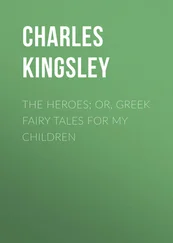Charles Kingsley - The Roman and the Teuton
Здесь есть возможность читать онлайн «Charles Kingsley - The Roman and the Teuton» — ознакомительный отрывок электронной книги совершенно бесплатно, а после прочтения отрывка купить полную версию. В некоторых случаях можно слушать аудио, скачать через торрент в формате fb2 и присутствует краткое содержание. Жанр: foreign_prose, История, foreign_edu, foreign_antique, на английском языке. Описание произведения, (предисловие) а так же отзывы посетителей доступны на портале библиотеки ЛибКат.
- Название:The Roman and the Teuton
- Автор:
- Жанр:
- Год:неизвестен
- ISBN:нет данных
- Рейтинг книги:3 / 5. Голосов: 1
-
Избранное:Добавить в избранное
- Отзывы:
-
Ваша оценка:
- 60
- 1
- 2
- 3
- 4
- 5
The Roman and the Teuton: краткое содержание, описание и аннотация
Предлагаем к чтению аннотацию, описание, краткое содержание или предисловие (зависит от того, что написал сам автор книги «The Roman and the Teuton»). Если вы не нашли необходимую информацию о книге — напишите в комментариях, мы постараемся отыскать её.
The Roman and the Teuton — читать онлайн ознакомительный отрывок
Ниже представлен текст книги, разбитый по страницам. Система сохранения места последней прочитанной страницы, позволяет с удобством читать онлайн бесплатно книгу «The Roman and the Teuton», без необходимости каждый раз заново искать на чём Вы остановились. Поставьте закладку, и сможете в любой момент перейти на страницу, на которой закончили чтение.
Интервал:
Закладка:
The best authorities which I can give you (though you will find many more in Gibbon) are—for the main story, Jornandes, De Rebus Geticis. Himself a Goth, he wrote the history of his race, and that of Attila and his Huns, in good rugged Latin, not without force and sense.
Then Claudian, the poet, a bombastic panegyrist of contemporary Roman scoundrels; but full of curious facts, if one could only depend on them.
Then the earlier books of Procopius De Bello Gothico, and the Chronicle of Zosimus.
Salvian, Ennodius and Sidonius Apollinaris, as Christians, will give you curious details, especially as to South France and North Italy; while many particulars of the first sack of Rome, with comments thereon which express the highest intellects of that day, you will find in St. Jerome’s Letters, and St. Augustine’s City of God.
But if you want these dreadful times explained to you, I do not think you can do better than to take your Bibles, and to read the Revelations of St. John the Apostle. I shall quote them, more than once, in this lecture. I cannot help quoting them. The words come naturally to my lips, as fitter to the facts than any words of my own.
I do not come here to interpret the Book of Revelations. I do not understand that book. But I do say plainly, though I cannot interpret the book, that the book has interpreted those times to me. Its awful metaphors give me more living and accurate pictures of what went on than any that Gibbon’s faithful details can give.
You may see, if you have spiritual eyes wherewith to see, the Dragon, the serpent, symbol of political craft and the devilish wisdom of the Roman, giving authority to the Beast, the symbol of brute power; to mongrel Ætiuses and Bonifaces, barbarian Stilichos, Ricimers and Aspars, and a host of similar adventurers, whose only strength was force.
You may see the world wondering after the beast, and worshipping brute force, as the only thing left to believe in.
You may see the nations of the world gnawing their tongues for pain, and blaspheming God, but not repenting of their deeds.
You may see the faith and patience of the saints—men like Augustine, Salvian, Epiphanius, Severinus, Deogratias of Carthage, and a host more, no doubt, whose names the world will never hear—the salt of the earth, which kept it all from rotting.
You may see Babylon the great fallen, and all the kings and merchants of the earth bewailing her afar off, and watching the smoke of her torment.
You may see, as St. John warns you, that—after her fall, mind—if men would go on worshipping the beast, and much more his image—the phantom and shadow of brute force, after the reality had passed away—they should drink of the wine of the wrath of God, and be tormented for ever. For you may see how those degenerate Romans did go on worshipping the shadow of brute force, and how they were tormented for ever; and had no rest day or night, because they worshipped the Beast and his image.
You may see all the fowl of the heavens flocking together to the feast of the great God, to eat the flesh of kings and captains, horse and rider, bond and free.—All carrion-birds, human as well as brute—All greedy villains and adventurers, the scoundreldom of the whole world, flocking in to get their share of the carcass of the dying empire; as the vulture and the raven flock in to the carrion when the royal eagles have gorged their fill.
And lastly, you may see, if God give you grace, One who is faithful and true, with a name which no man knew, save Himself, making war in righteousness against all evil; bringing order out of disorder, hope out of despair, fresh health and life out of old disease and death; executing just judgment among all the nations of the earth; and sending down from heaven the city of God, in the light of which the nations of those who are saved should walk, and the kings of the earth should bring their power and their glory into it; with the tree of life in the midst of it, whose leaves should be for the healing of the nations.
Again, I say, I am not here to interpret the Book of Revelations; but this I say, that that book interprets those times to me.
Leaving, for the present at least, to better historians than myself the general subject of the Teutonic immigrations; the conquest of North Gaul by the Franks, of Britain by the Saxons and Angles, of Burgundy by the Burgundians, of Africa by the Vandals, I shall speak rather of those Teutonic tribes which actually entered and conquered Italy; and first, of course, of the Goths. Especially interesting to us English should their fortunes be, for they are said to be very near of kin to us; at least to those Jutes who conquered Kent. As Goths, Geats, Getæ, Juts, antiquarians find them in early and altogether mythic times, in the Scandinavian peninsula, and the isles and mainland of Denmark.
Their name, it is said, is the same as one name for the Supreme Being. Goth, Guth, Yuth, signifies war. ‘God’ is the highest warrior, the Lord of hosts, and the progenitor of the race, whether as an ‘Eponym hero’ or as the supreme Deity. Physical force was their rude notion of Divine power, and Tiu, Tiv, or Tyr, in like manner, who was originally the god of the clear sky, the Zeus or Jove of the Greeks and Romans, became by virtue of his warlike character, identical with the Roman Mars, till the dies Martis of the Roman week became the German Tuesday.
Working their way down from Gothland and Jutland, we know not why nor when, thrusting aside the cognate Burgunds, and the Sclavonic tribes whom they met on the road, they had spread themselves, in the third century, over the whole South of Russia, and westward over the Danubian Provinces, and Hungary. The Ostrogoths (East-goths) lay from the Volga to the Borysthenes, the Visigoths (West-goths?) from the Borysthenes to the Theiss. Behind them lay the Gepidæ, a German tribe, who had come south-eastward with them, and whose name is said to signify the men who had ‘bided’ (remained) behind the rest.
What manner of men they were it is hard to say, so few details are left to us. But we may conceive them as a tall, fair-haired people, clothed in shirts and smocks of embroidered linen, and gaiters cross-strapped with hide; their arms and necks encircled with gold and silver rings; the warriors, at least of the upper class, well horsed, and armed with lance and heavy sword, with chain-mail, and helmets surmounted with plumes, horns, towers, dragons, boars, and the other strange devices which are still seen on the crests of German nobles. This much we can guess; for in this way their ancestors, or at least relations, the War-Geats, appear clothed in the grand old song of Beowulf. Their land must have been tilled principally by slaves, usually captives taken in war: but the noble mystery of the forge, where arms and ornaments were made, was an honourable craft for men of rank; and their ladies, as in the middle age, prided themselves on their skill with the needle and the loom. Their language has been happily preserved to us in Ulfilas’ Translation of the Scriptures. For these Goths, the greater number of them at least, were by this time Christians, or very nearly such. Good Bishop Ulfilas, brought up a Christian and consecrated by order of Constantine the Great, had been labouring for years to convert his adopted countrymen from the worship of Thor and Woden. He had translated the Bible for them, and had constructed a Gothic alphabet for that purpose. He had omitted, however (prudently as he considered) the books of Kings, with their histories of the Jewish wars. The Goths, he held, were only too fond of fighting already, and ‘needed in that matter the bit, rather than the spur.’ He had now a large number of converts, some of whom had even endured persecution from their heathen brethren. Athanaric, ‘judge,’ or alderman of the Thervings, had sent through the camp—so runs the story—the waggon which bore the idol of Woden, and had burnt, with their tents and their families, those who refused to worship.
Читать дальшеИнтервал:
Закладка:
Похожие книги на «The Roman and the Teuton»
Представляем Вашему вниманию похожие книги на «The Roman and the Teuton» списком для выбора. Мы отобрали схожую по названию и смыслу литературу в надежде предоставить читателям больше вариантов отыскать новые, интересные, ещё непрочитанные произведения.
Обсуждение, отзывы о книге «The Roman and the Teuton» и просто собственные мнения читателей. Оставьте ваши комментарии, напишите, что Вы думаете о произведении, его смысле или главных героях. Укажите что конкретно понравилось, а что нет, и почему Вы так считаете.












